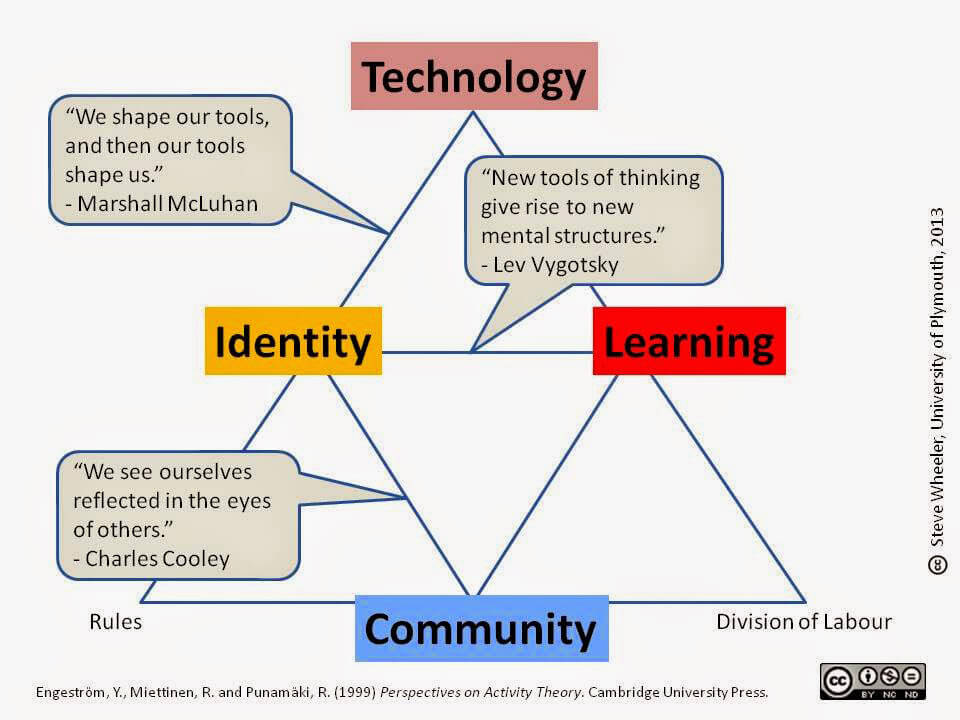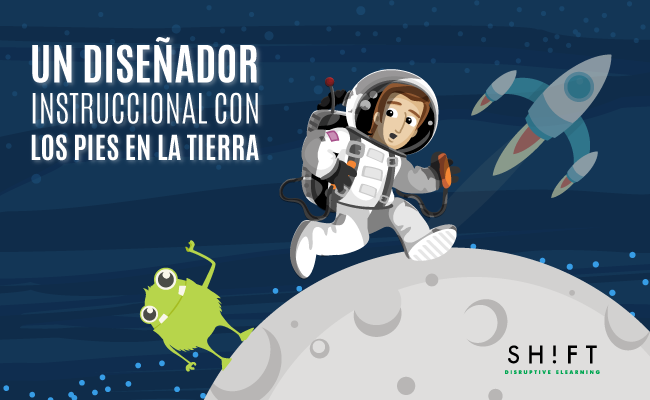5 Libros para salir de tu zona de confort. ¿Te atreves a leer? - Linkis.com:
'via Blog this'
Espacio para el intercambio y registro de ideas, comentarios, articulos y referencias sobre Educación a Distancia utilizando Internet. El material acopiado lo utilizo como bibliografía con mis compañeros de aprendizaje.

lunes, diciembre 21, 2015
domingo, diciembre 20, 2015
How To Create & Collaborate In A Sharing Economy -

How To Create & Collaborate In A Sharing Economy -:
"2015 has been a year ripe with change and watershed transformation, but as we move into 2016 many new trends lurk on the horizon. In a new report, Billee Howard talks about the top 10 emerging trends to look out for in the year ahead that will impact entrepreneurialism, innovation and the consumer landscape overall. One of those trends that parallels those happening in education is the idea of a sharing economy.
The sharing economy will continue to explode but will move away from the notion of “altruism” to profiting for the many and not the few. We will see a continued push towards sharing business ecosystems that embrace the we instead of the me and provide value and benefit to the communities they operate in as a whole.
This idea of businesses benefiting themselves, the consumers they serve, and local people seeking freelance employment, will become more evident and an obvious sign of the permanence of our new Uber X economy."
'via Blog this'
13 Ways Education Could Change In The Next 13 Years

13 Ways Education Could Change In The Next 13 Years:
"Ed note: 2 Pieces for Context–30 Incredible Ways Technology Will Change Education by 2028 and Curriculum is More Important Than Learning Technology
We recently speculated on the what education might look like in the year 2028 (see the link above), when today’s kindergartners have finished K-12 and beginning their work in the world (or college). The focus of that piece was technology, and how it might impact the way students learn in the coming decades.
This piece is similar, but a bit more focused on the pros and the cons of learning trends, and the ultimate impact they might have on education, and society at large. Note that all of these pieces are necessarily speculative, presented to hopefully promote conversation, illuminate possibility, and help us to stop and think where this all might be headed."
'via Blog this'
7 Steps To Become an Instructional Designer - eLearning Industry

7 Steps To Become an Instructional Designer - eLearning Industry:
"Choosing to become an Instructional Designer can lead to a truly rewarding career path. Not only do you get the chance to earn a living by doing what you are passionate about, but you also have the opportunity to give others the gift of knowledge. Keep in mind that an effectively designed eLearning course or training module can make a world of difference in someone's personal or professional life. With that being said, knowing which steps to take in order to become an Instructional Designer may be crucial for your career."
'via Blog this'
viernes, junio 05, 2015
Las cosas que nadie le dice sobre ser un diseñador instruccional
Las cosas que nadie le dice sobre ser un diseñador instruccional:

"Entonces, ¿cree que ha encontrado su vocación?
¿Y ha decidido que usted quiere ser un diseñador instruccional?
¡Eso es genial! No podría haber elegido un trabajo más emocionante. Pero antes de dar el paso, demos un vistazo a la realidad. Quítese los lentes color de rosa y conozca realmente qué es el trabajo de un diseñador de eLearning."
'via Blog this'

"Entonces, ¿cree que ha encontrado su vocación?
¿Y ha decidido que usted quiere ser un diseñador instruccional?
¡Eso es genial! No podría haber elegido un trabajo más emocionante. Pero antes de dar el paso, demos un vistazo a la realidad. Quítese los lentes color de rosa y conozca realmente qué es el trabajo de un diseñador de eLearning."
'via Blog this'
lunes, mayo 25, 2015
Diez beneficios del lenguaje digital en la educación | Educación y Cultura : Revista AZ
Diez beneficios del lenguaje digital en la educación | Educación y Cultura : Revista AZ:

"Cuando hablamos de lenguaje digital, no solo hablamos de lenguaje hipertextual, sino también de los lenguajes interactivo, audiovisual, sonoro, social o de programación, que facilitan el aprendizaje al alumno, lo motivan al estudio, le permiten adquirir las competencias clave de esta época y fomentan el desarrollo de las inteligencias múltiples.
Frente al lenguaje analógico, más limitado, el lenguaje digital reúne y combina un amplio abanico de lenguajes que permiten a los alumnos aprender de distintas maneras, y a los profesores, personalizar la enseñanza en función de las características de cada alumno."
'via Blog this'

"Cuando hablamos de lenguaje digital, no solo hablamos de lenguaje hipertextual, sino también de los lenguajes interactivo, audiovisual, sonoro, social o de programación, que facilitan el aprendizaje al alumno, lo motivan al estudio, le permiten adquirir las competencias clave de esta época y fomentan el desarrollo de las inteligencias múltiples.
Frente al lenguaje analógico, más limitado, el lenguaje digital reúne y combina un amplio abanico de lenguajes que permiten a los alumnos aprender de distintas maneras, y a los profesores, personalizar la enseñanza en función de las características de cada alumno."
'via Blog this'
Suscribirse a:
Comentarios (Atom)